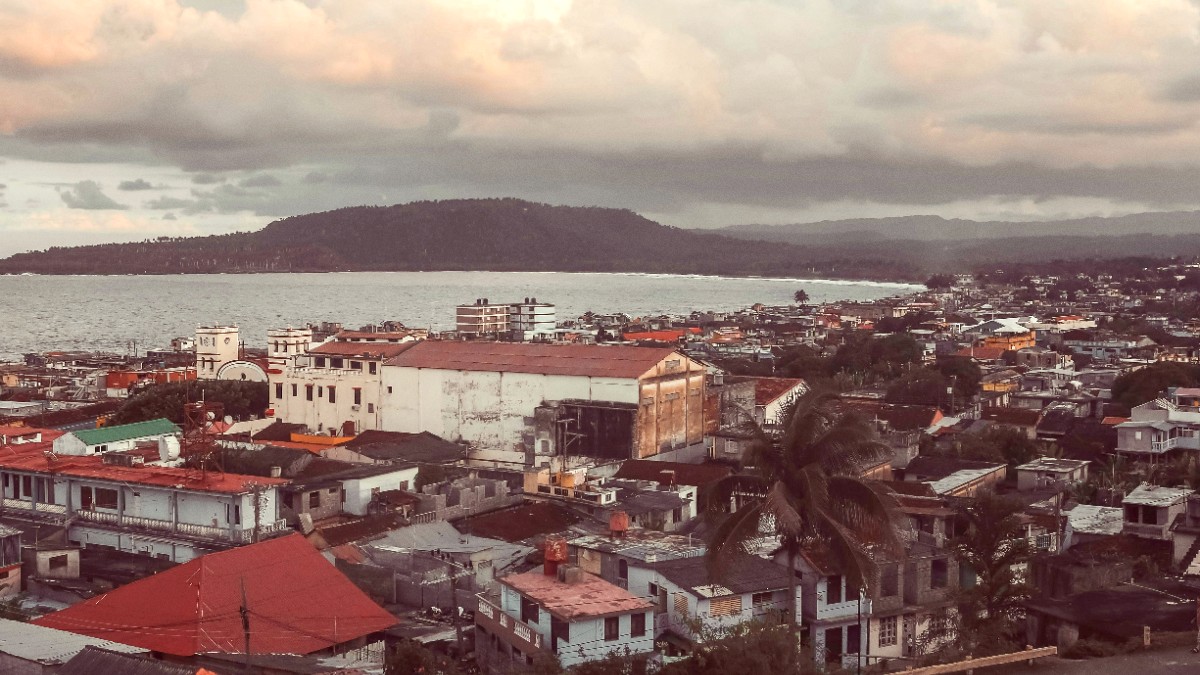
Cuba
Holguin experiences a tropical climate with two distinct seasons: a dry season and a wet season. The dry season (November to April) has lower humidity, less rainfall, and pleasant temperatures. This is the most comfortable time to visit. Days are usually sunny and bright, ideal for outdoor activities.
The wet season (May to October) brings higher humidity, more frequent rainfall, and hotter temperatures. Rain often comes as short, heavy showers, typically in the late afternoon, leaving plenty of sunshine throughout the day. Average annual temperature is around 25°C (77°F).
The official hurricane season runs from June 1 to November 30. The highest risk occurs from August to October. Travelers during this period monitor weather forecasts closely and possess comprehensive travel insurance.
For hiking and city exploration, the dry season offers more comfortable temperatures and less rain, making walking tours and treks pleasant. Outdoor activities in the wet season are best for mornings; afternoon showers are often short.
June to November
Dry Season (Dec-Apr) for comfort and activities.
Wet Season (May-Oct) has heat, humidity, and storm risk.
May, November
Fewer crowds, moderate prices, good balance.
Transition period to or from hurricane season.
Water & Land
Dry Season: swimming, snorkeling, diving with clear visibility.
Dry Season: comfortable temperatures, less rain.
The average annual temperature is around 25°C (77°F). During the dry season, temperatures typically range from 20-28°C (68-82°F). In the wet season, they are hotter, from 25-32°C (77-90°F).
January to April are usually the driest months. The wettest periods occur in May-June and September-October. Humidity levels remain high year-round, more noticeable during the wet season.
Resorts and authorities generally have good protocols for guest safety during a storm threat.
Travel insurance is notably beneficial during hurricane season.
Outdoor activities during the wet season are often best planned for mornings.
The dry season offers more comfortable temperatures for exploring on foot.
Calm seas and clear visibility make the dry season ideal for underwater exploration.
Most visitors need a tourist card for Cuba.
Most foreign visitors need a tourist card (visa) for entry, valid for a single entry and a stay of up to 30 days, extendable for an additional 30 days while in Cuba.
Carry essential documents for smooth entry into Cuba.
Plan your budget for a Holguin trip with confidence.
These daily estimates for Holguin are based on different travel styles.
Accommodations (per night):
Casa Particular: US$25-50
Mid-range Hotel (Holguin City): US$60-120
All-inclusive Resort (Guardalavaca/Playa Pesquero): US$100-300+ (per person, per night, often covers all meals and drinks)
Meals (per person):
Local eatery/street food: US$3-8
Mid-range Paladar: US$10-25
Fine Dining (resorts): US$30+
The official currency is the Cuban Peso (CUP). The Convertible Peso (CUC) was phased out in early 2021.
All prices and transactions now use CUP.
US dollar exchange is generally less favorable due to surcharge.
Cards issued by U.S. Banks usually do not work in Cuba due to U.S. Sanctions.
Bring sufficient cash in a non-USD currency (Euros, CAD, GBP).
Relying on cards as your only source of funds is not advisable.
Tipping is customary and appreciated in Cuba, given the economic situation.
A 10% tip is standard in restaurants if not included.
Do not forget small amounts for musicians (1-2 CUP).
| Category | Strategy | Benefit |
|---|---|---|
| Accommodation | Stay in casas particulares | Authentic experience and better value |
| Dining | Eat at local paladares or street food stalls | More genuine and cheaper food |
| Transportation | Use local transportation like bicitaxis or shared taxis (colectivos) | More affordable than private options |
Being informed and prepared makes a difference for your health and safety in Holguin.
No specific vaccinations are required for Cuba unless you arrive from a yellow fever risk country.
Routine vaccinations (MMR, DTP, Polio) are up-to-date. Hepatitis A and Typhoid are commonly recommended.
Traveler's Diarrhea (drink bottled water), Mosquito-borne illnesses (Dengue, Zika), Sunburn/Heatstroke (sunscreen, hydration).
Medical facilities, especially outside Havana, can be basic.
They might lack certain medications or equipment. Tourists generally access clinics or hospitals designated for foreigners, which require upfront payment.
Major resorts in Guardalavaca may have on-site medical personnel for minor issues. For serious conditions, evacuation might be necessary.
Always check current World Health Organization (WHO) guidelines before your trip.
Police: 105, Fire: 106, Ambulance: 104. Memorize or save these numbers.
Keep your home country's embassy or consulate contact information (typically in Havana) readily accessible.
Have your travel insurance policy number and emergency contact details in both physical and digital formats.
Holguin is generally considered safe for tourists. Violent crime against tourists is rare.
Safe drinking water and good food hygiene are important for your health.
Do not drink tap water. Always consume Bottled water, or water that has been boiled or treated. Water purification tablets or a filter bottle are useful backups.
Eat at reputable establishments. Food should be thoroughly cooked and served hot. Exercise caution with street food; choose vendors with high turnover and visible hygiene practices.
Avoid unpeeled fruits or vegetables that might have been washed in tap water. Be cautious with raw salads.